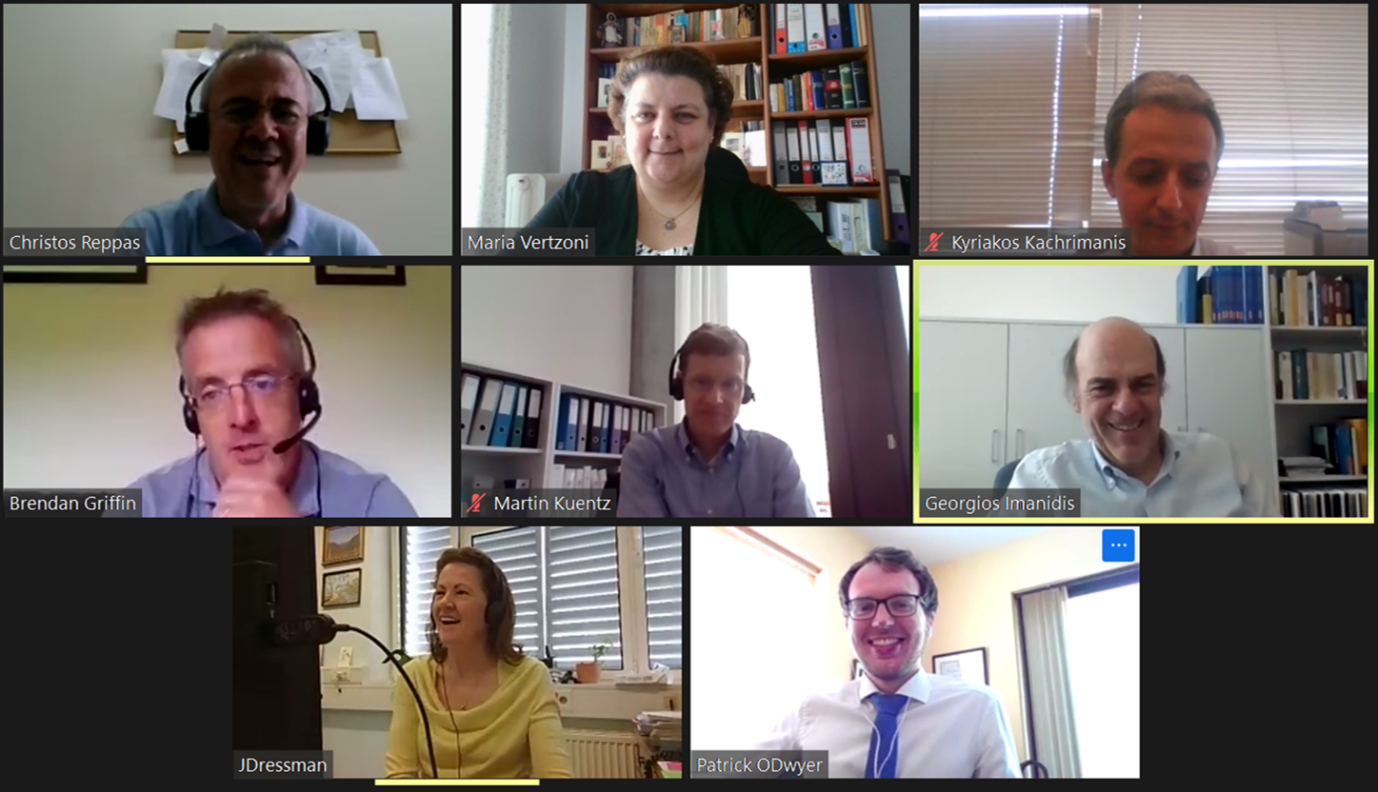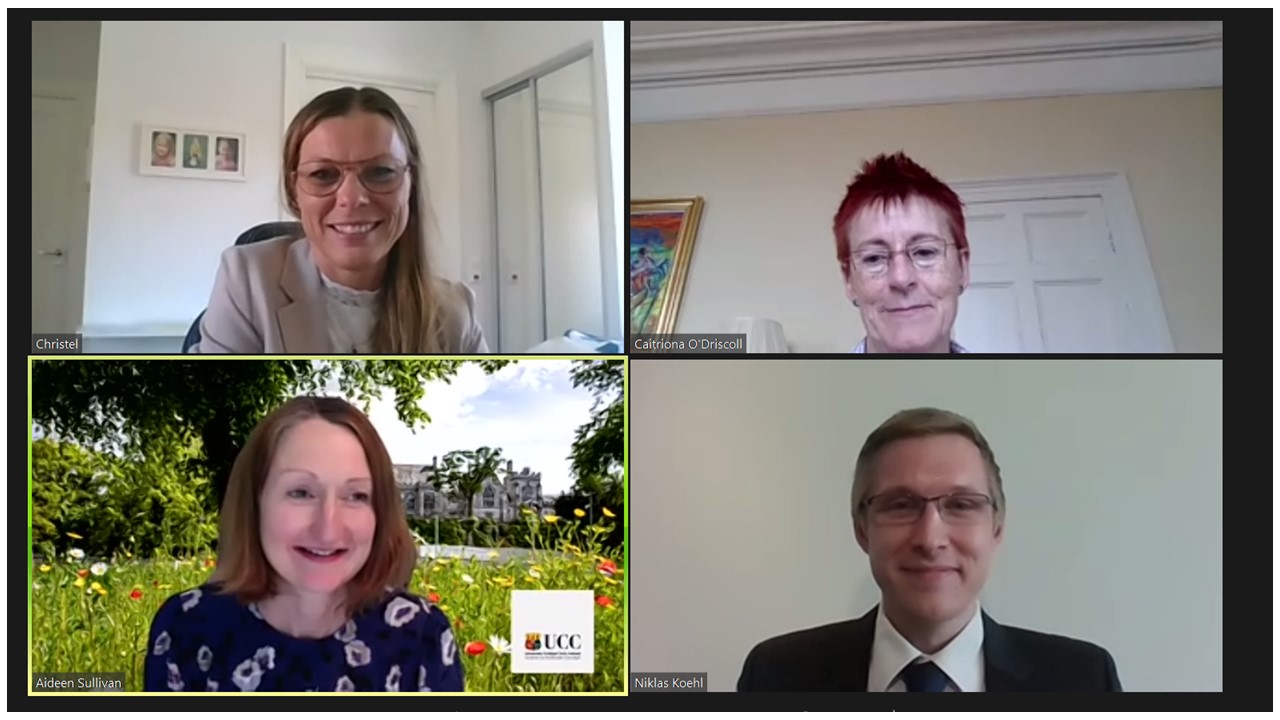| Patrick O'Dwyer (ESR10) has recently successfully defended his PhD. We held a short interview with Patrick to find out more on his project and plans for the future. We would like to congratulate Patrick and wish him all the best. |
1. What has your research project focused on and what are your key results and innovations coming from your research project?
My research project focused on the development of small-scale lab tests to replicate the transfer of a medicine from the stomach to the small intestine. Many of the new chemical entities and drug formulations in the development pipelines are sensitive to this change of environment, resulting in supersaturation and precipitation of drug in the intestine. As this supersaturation and precipitation can greatly affect the oral absorption of the drug, it is critical to understand this behaviour at an early stage of development. In early stage development, very limited quantities of drug are available, thus necessitating the use of small-scale methods. The tests developed as part of my work show the effect of the transfer from gastric to intestinal conditions using only small quantities of drug. In addition, we have incorporated the results from our lab-based tests into computational modelling software to gain a better understanding of the oral absorption prospects of a drug / drug product .
2. What impact does your research project and your outcomes have?
The tests developed as part of this work will be hugely beneficial to industry during the drug development process. Obtaining relevant information at an early stage of development facilitates a more efficient development process. This efficiency can save time and money for industry, with a knock-on benefit of enabling earlier access of patients to new medicines. By incorporating results from our labs tests into computer models, a better understanding of the factors affecting the performance of the drug / drug product can be achieved. This combination of lab tests with computer modelling should help to reduce the number of animal and human trials required in the future, highly beneficial from both a resource and ethical point of view.
3. What were your personal highlights over the course of your research project?
The PEARRLs of wisdom weeks were hugely enjoyable and a particular highlight during my PhD. It was a great experience to present work to experts in the field, with an added benefit of getting very constructive feedback to improve your research. In addition, it was a great opportunity to build your network and establish collaborations between all the projects. Several training workshops were also included as part of the weeks and they covered very valuable topics such as scientific writing skills, presentation skills and commercialisation, just to mention a few!
4. Are there any elements of the training you received that you find should be integrated in local doctoral programmes?
I think the secondments were a brilliant part of the PEARRL project. I hugely enjoyed my secondment at the European Medicines Agency. It was great to experience the regulatory environment and it really opened my eyes to the work of the regulators. My academic secondment to the National and Kapodistrian University of Athens was also hugely beneficial by learning new laboratory techniques and running many experiments.
5. How did the PEARRL network impact your doctoral experience?
The PEARRL network hugely benefited my doctoral experience. From a professional point of view, it opened up many opportunities for collaboration, drawing on expertise from all parties. In addition, it was brilliant to regularly receive feedback on my work from experts across Europe. From personal point of view, I have gained many close friends from the network (giving me a great excuse to travel across Europe to visit them all!!)
6. What are your plans for the future?
I have recently started a position as Lecturer in Pharmaceutics in University College Cork. This will allow me to continue to my research from the project and lead innovative research in the future.
My research project focused on the development of small-scale lab tests to replicate the transfer of a medicine from the stomach to the small intestine. Many of the new chemical entities and drug formulations in the development pipelines are sensitive to this change of environment, resulting in supersaturation and precipitation of drug in the intestine. As this supersaturation and precipitation can greatly affect the oral absorption of the drug, it is critical to understand this behaviour at an early stage of development. In early stage development, very limited quantities of drug are available, thus necessitating the use of small-scale methods. The tests developed as part of my work show the effect of the transfer from gastric to intestinal conditions using only small quantities of drug. In addition, we have incorporated the results from our lab-based tests into computational modelling software to gain a better understanding of the oral absorption prospects of a drug / drug product .
2. What impact does your research project and your outcomes have?
The tests developed as part of this work will be hugely beneficial to industry during the drug development process. Obtaining relevant information at an early stage of development facilitates a more efficient development process. This efficiency can save time and money for industry, with a knock-on benefit of enabling earlier access of patients to new medicines. By incorporating results from our labs tests into computer models, a better understanding of the factors affecting the performance of the drug / drug product can be achieved. This combination of lab tests with computer modelling should help to reduce the number of animal and human trials required in the future, highly beneficial from both a resource and ethical point of view.
3. What were your personal highlights over the course of your research project?
The PEARRLs of wisdom weeks were hugely enjoyable and a particular highlight during my PhD. It was a great experience to present work to experts in the field, with an added benefit of getting very constructive feedback to improve your research. In addition, it was a great opportunity to build your network and establish collaborations between all the projects. Several training workshops were also included as part of the weeks and they covered very valuable topics such as scientific writing skills, presentation skills and commercialisation, just to mention a few!
4. Are there any elements of the training you received that you find should be integrated in local doctoral programmes?
I think the secondments were a brilliant part of the PEARRL project. I hugely enjoyed my secondment at the European Medicines Agency. It was great to experience the regulatory environment and it really opened my eyes to the work of the regulators. My academic secondment to the National and Kapodistrian University of Athens was also hugely beneficial by learning new laboratory techniques and running many experiments.
5. How did the PEARRL network impact your doctoral experience?
The PEARRL network hugely benefited my doctoral experience. From a professional point of view, it opened up many opportunities for collaboration, drawing on expertise from all parties. In addition, it was brilliant to regularly receive feedback on my work from experts across Europe. From personal point of view, I have gained many close friends from the network (giving me a great excuse to travel across Europe to visit them all!!)
6. What are your plans for the future?
I have recently started a position as Lecturer in Pharmaceutics in University College Cork. This will allow me to continue to my research from the project and lead innovative research in the future.



 RSS Feed
RSS Feed
